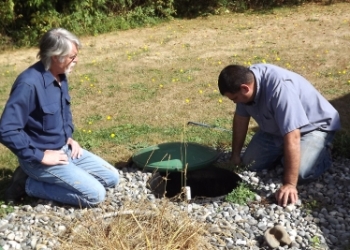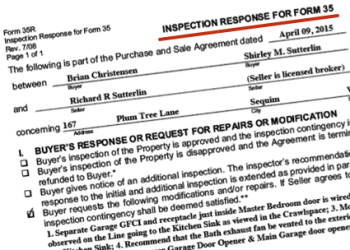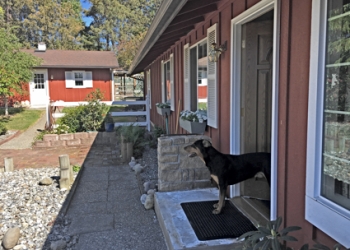I always recommend that buyers hire home inspectors, and every buyer should pop the $450 or so to get a thorough home inspection, but there are some important things to know about what home inspectors don’t tell you. This is not a matter of honesty or professionalism, because the home inspectors I’m talking about all have incredible credentials and knowledge, and they are all honest and are able to find everything and anything wrong with a home. This video shares just a peek behind the curtain about what home inspectors don’t tell you, and I will explain below the video what the major concerns are for buyers and sellers today.
Home Inspectors and Standards
First, there are three recognizable standards for examining the condition of a home. The first is the appraisal standard. Here an appraiser for a bank or mortgage company is looking for structural problems or other issues with the house that effect it’s security for the value of the loan. That makes sense, because the appraiser’s client is the bank, not the buyer.
The second standard is the home inspector’s standard. Here the home inspector is trying to find anything and everything that might be or could be wrong with the home. Even minutiae that the appraiser would not care about are in the home inspector’s report. His report includes notes that something might need further inspection by a specialized expert. A home inspector will make a note that there “may be indicia of” something. In other words, there may be signs that there could be something to look into further. That is a perfectly good idea, but that idea can be carried beyond practicality.
One inspector made a note of three tiny ant trails in a crawl space as possible moisture ants that could cause damage to a home, and the buyer should consider having a pest inspector investigate. But there were no ants present, and there was no indication of any ants in any of the beams or wood in the crawl space. There was no dry rot or any structural issues. The inspector’s note in his report caused a great deal of consternation with the buyer about termites, spiders, pests of various kinds, and whether the seller should be required to hire a company to spray the entire property. Meanwhile, there was not any sign of any pests whatsoever. Thereafter followed numerous emails, phone calls, tense feelings, legal forms flying back and forth between the Realtors and their clients, and questions about whether the transaction would make it to closing. All because of a minor note in a report that really did not have to be there. The home inspector considered his note kind of a footnote with little significance, but none of the parties considered his notation insignificant. And therein lies the problem.
Both the above inspectors (appraiser and home inspector) have their jobs, and they do them well, but a home inspector can and often does “scare the hell” out of buyers. They know this, but they feel an obligation to include the language in their reports that they are taught is necessary to protect them from legal liabilities.
The third standard is the one you and I would use as non-experts who think logically. We look at a beam under a deck that has some small rotted section, and yet we can jump up and down on the deck and it is as solid as any deck. Is the rotten section of the beam a “safety issue?” The inspector will call it a safety issue and recommend repair without specifying what kind of repair or how extensive. He would justifiably point out it is not his job to discuss the repair or what the repair should entail. His job is to simply point out the potential issues and then he is done.
The problem for a seller is that the buyer is hearing “safety issue” and to a buyer that sounds very threatening, and something that needs immediate attention or someone will end up in the hospital or dead. Yet based on the standard that you and I use (and a contractor who examines the deck uses), we might say the deck is good for many years to come. Because of the language in the home inspection report, the buyer will feel like the deck needs immediate repair and will typically demand the seller repair it at seller’s cost. But for the rest of us, that would not be necessary, and the deck could be good for many years. Still the home inspector feels legally obligated and is trained to use the words, “safety issue.”
This is one example, but the point is home inspectors are unintentionally scaring the hell out of buyers and creating unnecessary repairs for sellers. The result is often a nightmare scenario thrown into the laps of the buyers and sellers and their Realtors, and everyone is brought back to negotiate all over again on what can be repairs costing thousands of dollars. The seller has talked to a contractor who says the repairs are not a crisis, and could be done in the years ahead, but the buyer is thinking, “Oh my God. I can’t live in this house.” The home inspector never intended such results, but this is what keeps happening over and over again.
Home Inspectors and Liabilities
All of this is happening because of the different legal and regulatory standards, and because everyone is terrified of getting sued and ending up in an expensive nightmare called a lawsuit. I should also state what I think is obvious–this is not the fault of the home inspectors. They are stuck with what they are taught in their industry and by the legal liabilities they are told are threatening them.
I do have a practical suggestion for home inspectors that would probably put some of their language in a proper perspective. If they explained with detailed definitions what they mean with phrases like “safety issue,” and if they explained how their standards are different than appraisers’ standards, and how their use of phrases in their report (like “safety issue”) are different than the common meaning of average buyers and sellers and contractors, this would help everyone. To the average buyer or seller, “safety issue” means something very dangerous is about to happen, that someone could be seriously hurt or killed, and that it is imminent. But to a home inspector, it may simply mean that it is possible that something could go wrong and someone could get hurt, even if that possibility is 1 in 100,000. In other words, to the average person phrases home inspectors use scare them so bad because they have serious implications, but to home inspectors they could have serious meaning or maybe the phrases are just warnings of what could happen even if it is highly unlikely to ever happen. I hope you see my point. There is a huge difference in the meaning of words and phrases used by home inspectors and average people.
In other words, if you’re going to scare the hell out of people, you need to put your language and the report in context with real life situations. Many of the noted repairs in home inspection reports do not do that. For example, a home inspector who notes a deck beam is a “safety issue” will not tell you officially that the deck probably is good for many years, even if he would admit that verbally on the side.
Whether I have made my case persuasively or not, I know what I am saying is true, because I see the tension created between buyers and sellers all the time, and for nearly every sale. The solution is not easy, because home inspectors feel like they are caught between a rock and a hard place in terms of liabilities, and they feel obligated to use the phrases that scare people so badly. For the times that people need to be scared, that’s fine, but in a majority of sales today, those phrases are having an unnecessary but serious deleterious affect on buyers and sellers. The fix is really up to the home inspection industry, not me or anyone else, but I hope that by bringing this issue to the forefront, and I’m not the only one around the country writing about this, the home inspection industry will begin to address it appropriately.
My recommendation to buyers is to make sure you have wise advisers in your corner. Know when a repair that is identified in a home inspector’s report is just there because he is legally bound to use scary language and when it really does need repair.
You can read many previous articles about home inspectors and inspections at Sequim Home Inspectors.
Last Updated on September 22, 2019 by Chuck Marunde

































